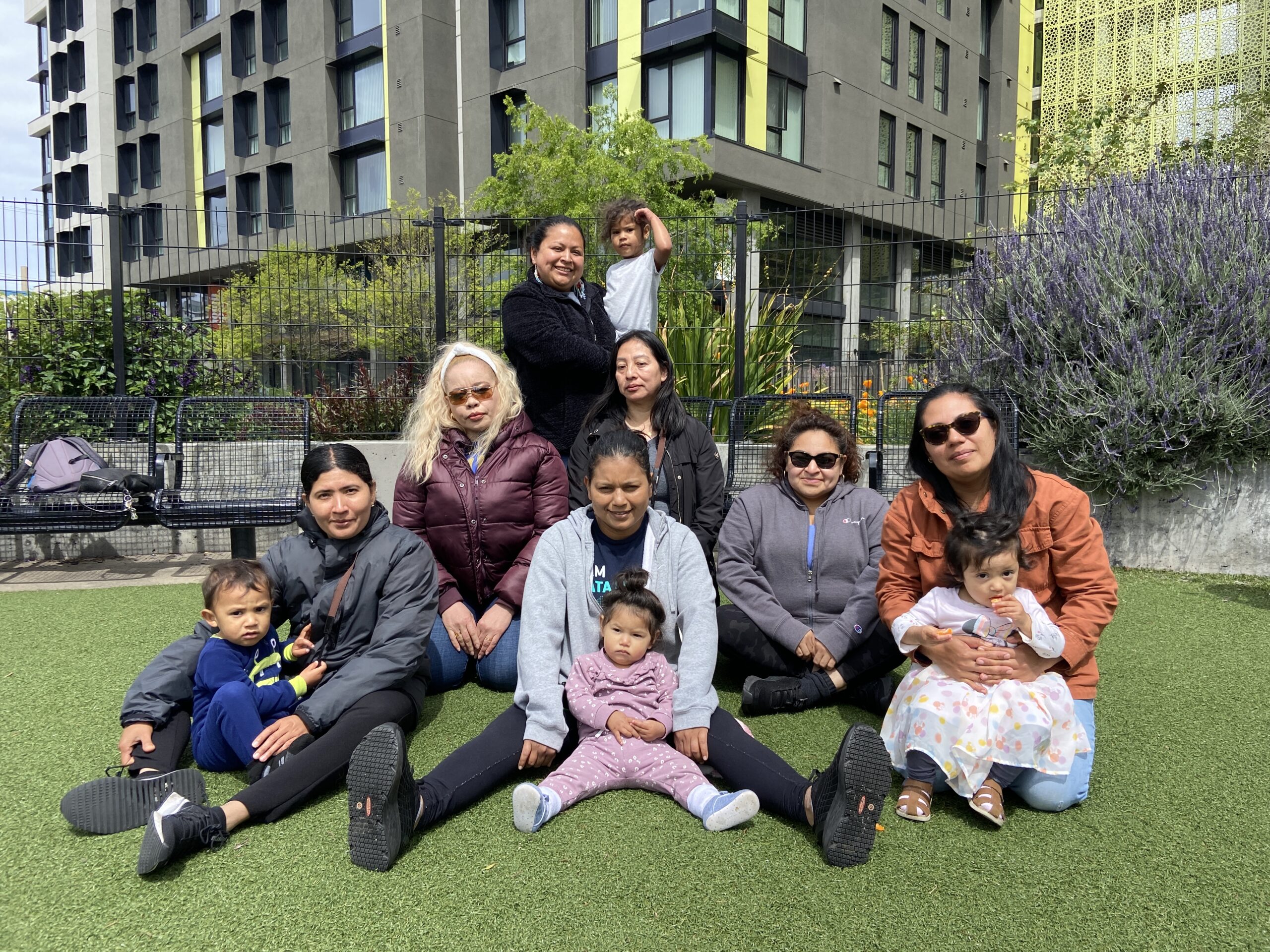
Participants of the photography and advocacy workshop.
[Leer en español] | [Photos]
“A picture is worth a thousand words” became the flagship saying for a group of families in San Francisco throughout 2023. The reason? A photography and advocacy project by the Mission Promise Neighborhood‘s Family Council.
For 12 months, a group of Latino parents participated in a workshop on everyday life photography aimed at highlighting the systemic barriers faced by immigrant families in the city. Participants focused on two themes for their images: the impact of immigration on the family unit and quality time spent with their children.
The group was coordinated by Ana Avilez, Program Associate for Promise City at MEDA, and Juan Mesa, Community Communications Manager at MEDA.
“At Promise Community, we provide a platform for families and students to share their experiences, which are valuable to our organization as they lead to positive changes in the Mission District,” Avilez said about the system’s objectives.
Among the participants were immigrants with over ten years of residency in San Francisco and others with less than two years.
“It was a positive experience,” said María González, who has been in San Francisco for 19 years. “At first, expressing my feelings through photographs was difficult, but later I understood that through my expression in the photos, I was giving other families an opportunity to identify themselves and express themselves calmly because it’s a safe space.”
Yajaira Ferreira, who has been in the city for nearly two years, shared a similar feeling at the beginning of the project.
“I was scared at first, it was a new experience, but as we progressed and took photos, I found my expression,” explained Yajaira. “Today, I feel more secure, stronger, I know my rights, I no longer have blinders on.”
MPN’s Family Council is a working group where Promise Community members participate in projects advocating for the well-being of families in the Mission District.
“It’s important to engage with these groups because you grow personally and academically,” said María. “We had moments of joy and sadness, but we formed a community.”
During their work together, participants take on leadership roles while becoming aware of the power of expressing their feelings and sharing their experiences with others.
“There’s always the fear of speaking up, but one must make time for everything,” said Yajaira. “We grow and become strong for our children, we will all face obstacles, but the desire is for our children to have a better experience than ours.”
The Family Council is now coordinated by Susana Gil-Durán, Family & Youth Engagement Specialist at MPN. If you’re interested in participating, you can contact Susana at sgilduran@medasf.org.
Familias abogan por el bienestar de la comunidad a través de la fotografía
“Una imagen vale más que mil palabras” se convirtió en el refrán de cabecera de un grupo de familias de San Francisco a lo largo de 2023. ¿La razón? Un proyecto de fotografía y de abogacía del Concilio de Familias de Mission Promise Neighborhood.
Durante 12 meses, cabezas de hogar tomaron un taller de fotografía de la vida cotidiana con el fin de destacar las barreras sistémicas a las que se enfrentan las familias en la ciudad. Los participantes se concentraron en dos temáticas para sus imágenes: el impacto de la inmigración en el núcleo familiar y el tiempo de calidad con los hijos.
El grupo estuvo coordinado por Ana Avilez, Program Associate de Promise City en MEDA, y Juan Mesa, Community Communications Manager de MEDA.
“En Comunidad Promesa ofrecemos una plataforma para que familias y estudiantes compartan sus experiencias, las cuales son valiosas para nuestra organización porque llevan a cambios positivos en el Distrito de la Mission”, dice Avilez sobre los objetivos del sistema.
Entre los participantes estuvieron inmigrantes con más de diez años de residencia en San Francisco y personas con menos de dos años.
“Fue una experiencia positiva”, dijo María González, quien lleva 19 años en San Francisco. “Al principio fue difícil expresar lo que sentía en las fotografías, pero luego pude entender que a través de mi expresión con las fotografías estaba dando una oportunidad a otras familias para que se identifiquen y puedan expresarse con tranquilidad porque se trata de un espacio seguro”.
Yajaira Ferreira, quien lleva cerca de dos años en la ciudad, compartió un sentimiento similar al comienzo del proyecto.
“Tuve miedo al principio, se trataba de una experiencia nueva, pero a medida que avanzamos y tomamos fotos, encontré mi expresión”, explicó Yajaira. “Hoy me siento más segura, más fuerte, sé cuáles son mis derechos, ya no tengo una venda en mis ojos”.
El Concilio de Familias de Mission Promise Neighborhood es un grupo de trabajo en el que miembros de la comunidad promesa participan en proyectos que aboguen por el bienestar de las familias en el Distrito de la Mission.
“Es importante acercarse a estos grupos porque se crece personalmente y académicamente”, dijo María. “Tuvimos momentos de alegría y tristeza, pero formamos una comunidad”.
Durante el tiempo de trabajo, los participantes asumen liderazgo al tiempo de que se concientizan del poder de expresar sus sentimientos y compartir sus experiencias con otros.
“Siempre se tiene el miedo de alzar la voz, pero uno debe tener tiempo para todo”, dijo Yajaira. “Uno crece y se hace fuerte por los hijos, todos vamos a enfrentar obstáculos, pero el deseo es que los hijos tengan una experiencia mejor a la nuestra”.
El Concilio de Familias ahora es coordinado por Susana Gil-Durán, Family & Youth Engagement Specialist en Comunidad Promesa de la Mission. Si le interesa participar la puede contactar a Susana a sgilduran@medasf.org.
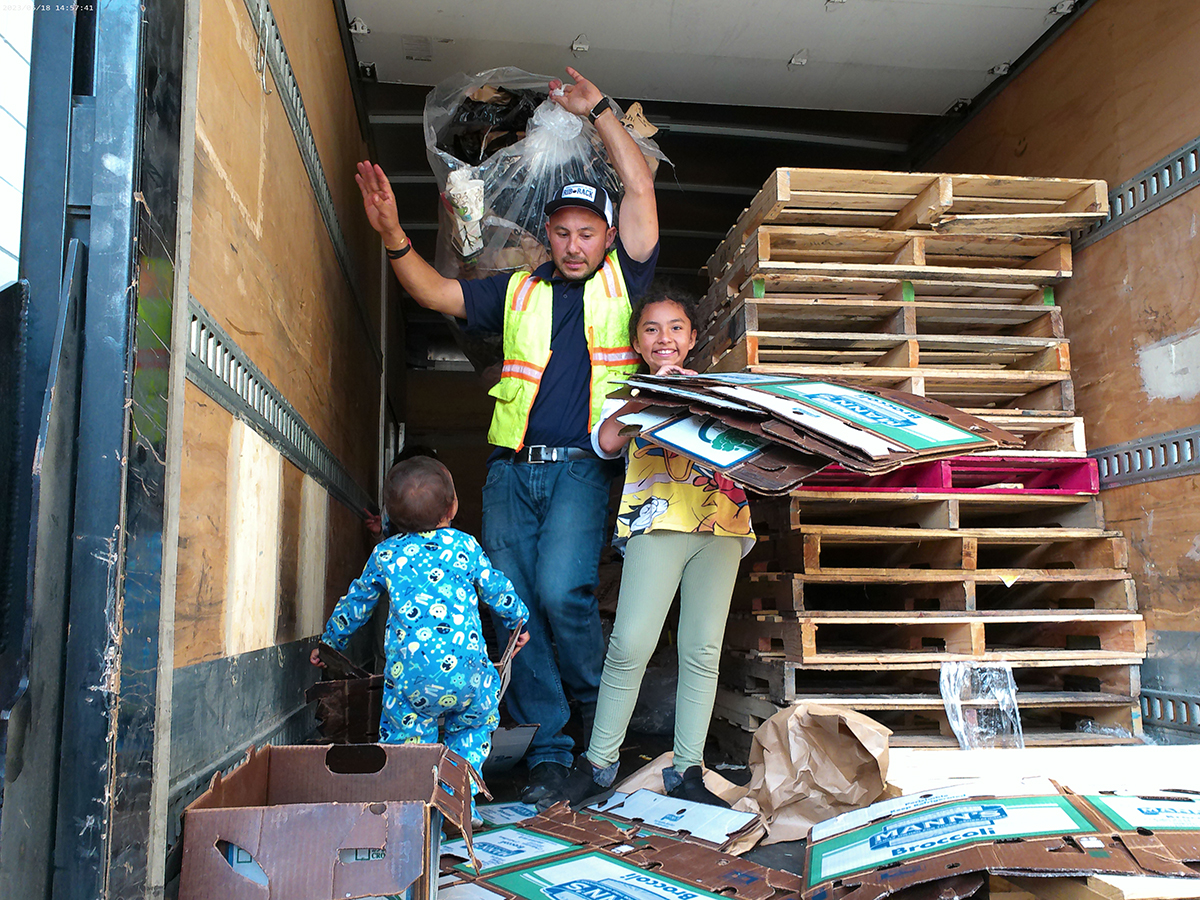
Deyser. “You can never give up. Even when life hits you hard, even if your heart is oppressed, don’t forget to smile, a smile feeds your soul.
I will tell you a little about our family. He have had a few tough months. Initially, because we lost our home in a fire. I thank god that our lives were saved, even though we lost everything. We never lost, nor will we ever lose, is our faith. A few days ago, they also stole our truck, our tool(s) for work, with which our family uses to get ahead. We cried, and we cried a lot, because we worked hard to be able to buy it, it was a huge effort. Are you wondering what we are doing here? We are unloading garbage, and those pallets that you see there, we sold them. We also sell cans and containers, metal and sometimes copper. No job is dishonorable nor should it bring any shame. The world is a better place when we recycle.We teach our children the value of work and the effort that everything in life requires, but our dream as parents is for our children to have better opportunities, to prepare themselves, to get an education, to be good people, who contribute good things to society. Life can be harder for us Latinos, we always come across more obstacles, we have less opportunities, but as a mother to my children, I have big dreams, and with God’s help they will become reality. With this photo I show our reality in this society. For those reading, what is your reality in this city?”

María. “Sometimes I feel like we are moving like this snail🐌 very slow and everything is so difficult.
Decisions have to be made, which path should I choose. To have two or three jobs or be a mother who is present in my childrens’ lives? To decide if my children’s wellbeing matters more or if I should provide them financial stability and security? Am I a bad mother for preferring to work and struggle against all the obstacles that life puts in my way? I think the system was created so that I can never rise up. The system wants to see me dragging like a snail. The final goal looks close, but walking this path will take me an eternity.”

Yajaira. “The reflection of the rainbow. The colors that give our life meaning. Hope, promises, general wellbeing for our children, the motivation for my struggle. The importance of bringing out a smile from our loved ones, for those we work hard for, so they are without anything they need, so they can grow as a person, think about their future, without worries of what their legal status is. The goal is so they can feel free and safe in their lives.”
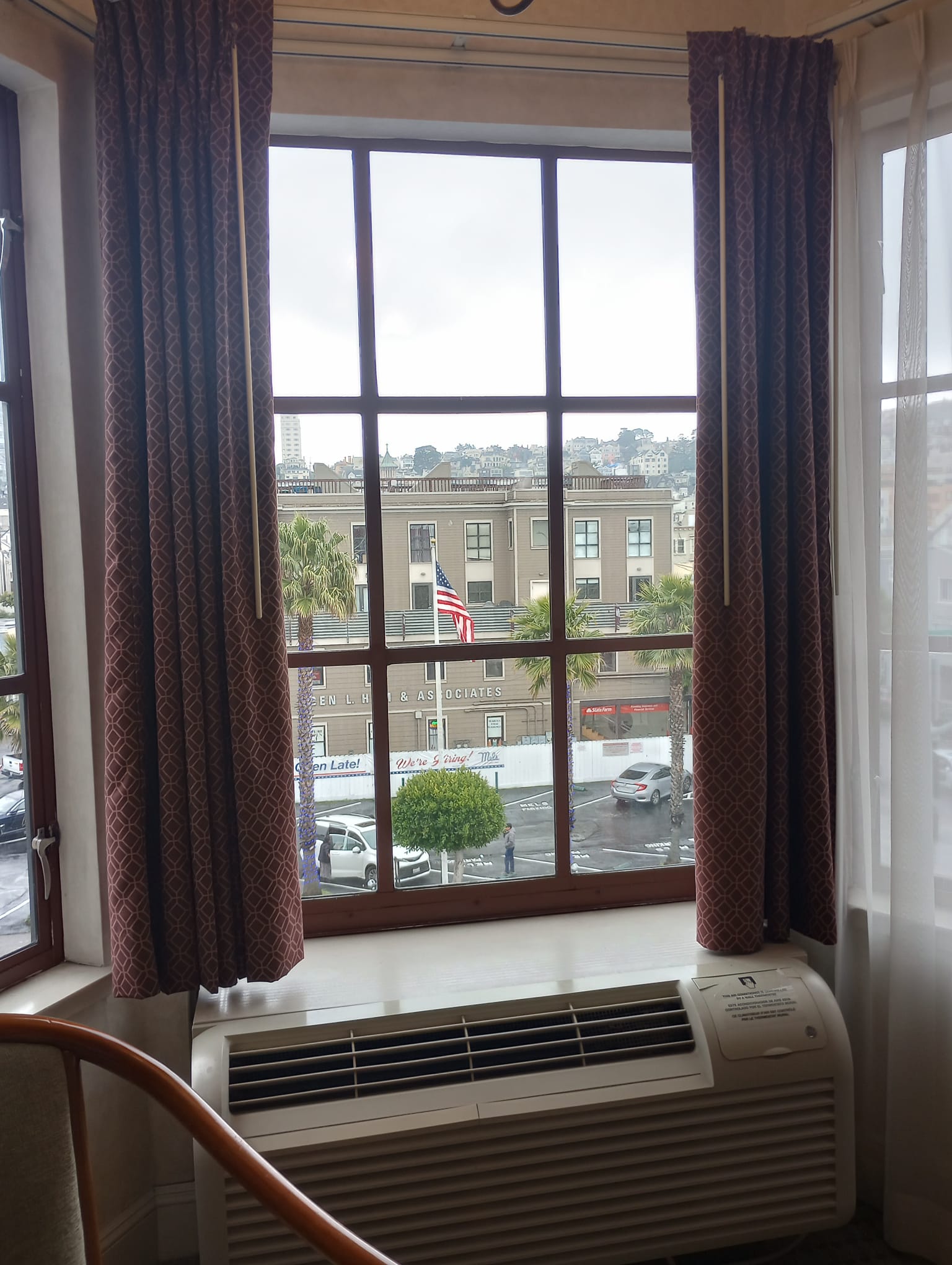
Alejandra. “When emigrating, there are times when one feels imprisoned. We all know the date of entry, but not the exit date because we don’t know how long the judicial process will take.We know it can take years. I have my team, my small nuclear family here, but I really miss my family that is over there, who despite the fact that we call each other daily, we do not know when we will be able to hug them again. The issue of immigration is very complex for all those of us which want to do things in the best way, but with the knowledge that we will always be against the clock since it takes time to gain status for undocumented immigrants.”

Jessica. “I want to someday feel free like the birds. Without stress, without worry, without fear of being deported to my country. To be able to get to a place that I can call my home. To look to the sky and to know that the sky’s the limit. To not limit my abilities due to a simple document that determines my value as a person or my capacity.”
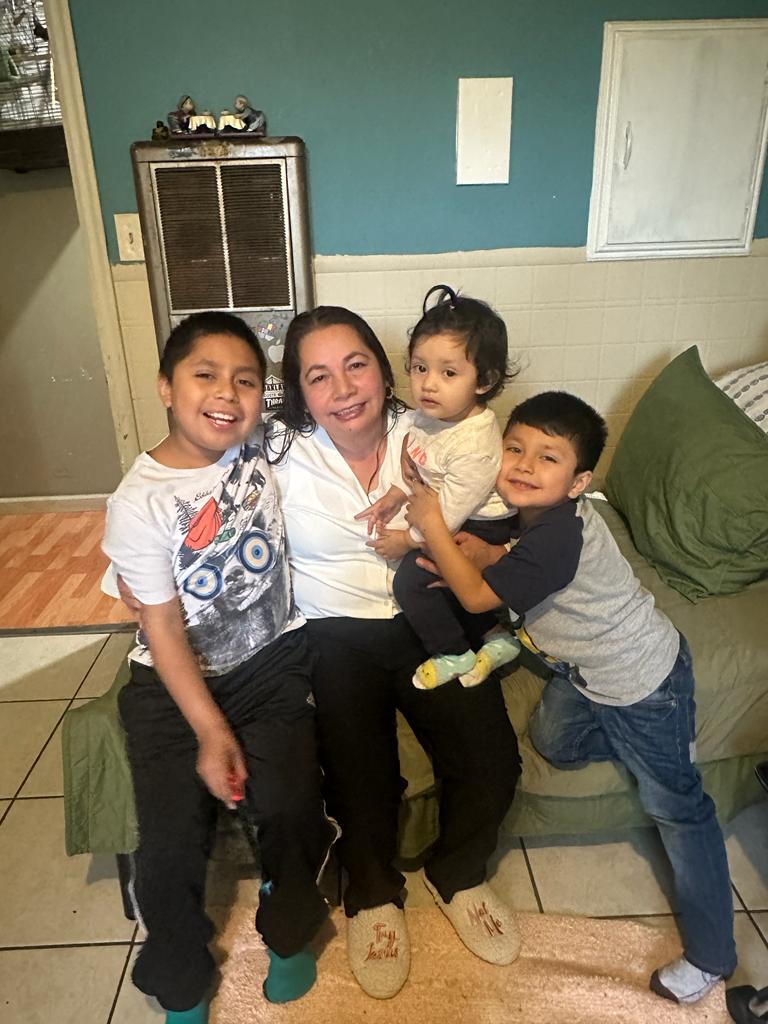
Yesika. “The joy of my family after my mother received her work permit. Here I am sharing with my children a moment which will change our family’s history in this country. One of the kids told his grandma ‘you are going to be like us’ and the other told her ‘I will help you learn English.’ Three years ago, my mother thought about returning to Mexico because the opportunity to have some kind of immigration status was too far away. Now she is my motivation day-to-day, to keep fighting. I am motivated to learn English and to defend myself and communicate with other people.”
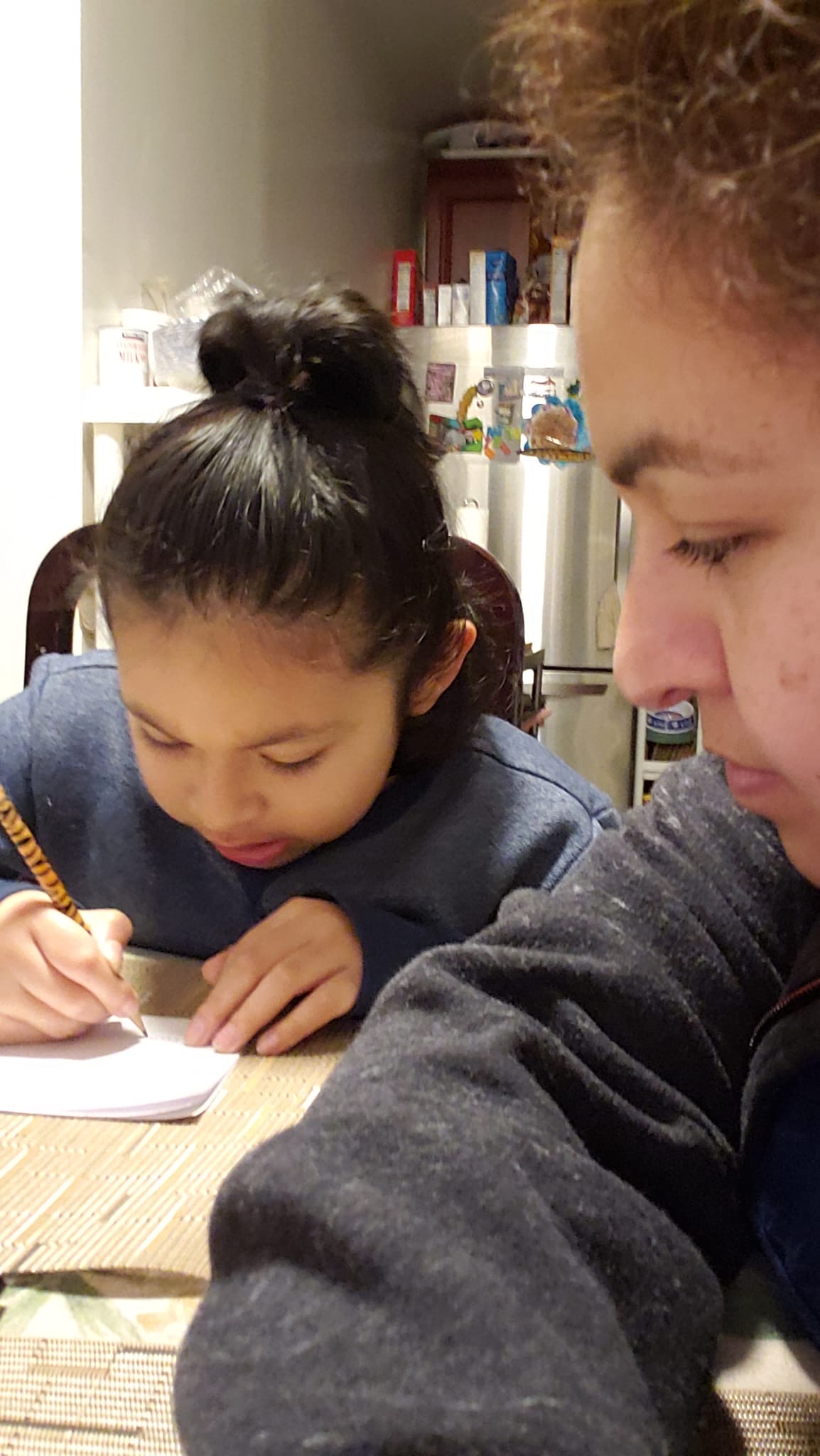
Maura. “Something as common as being with our children doing homework, is so difficult for mother like me. When it happens, it becomes a privilege. Having to work from dawn to dusk at two or three jobs just to survive the high cost of housing, high cost of food and being a single mother, leads us to have limited time with our families, without having any support. They say that the United States is a country of opportunities, but it is difficult to be able to realize the dream. What we have left is to pass on our dreams to our children.”
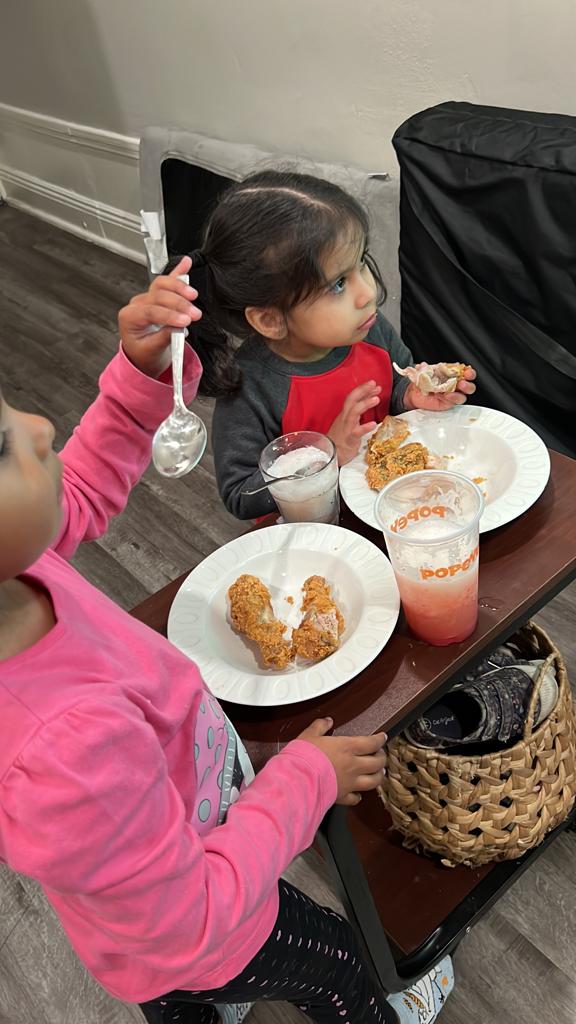
Janeth. “The constant struggle to become legal as an immigrant and the limitations that our available to our children. Here are my daughters, together. For one of them, it will be easier to survive in the United States. For the other, my older child, she will struggle to be seen and will have to deal with her legal status from day to day.
I am a single mother. I am willing to continue fighting to show them that anything is possible and nothing is impossible.”




